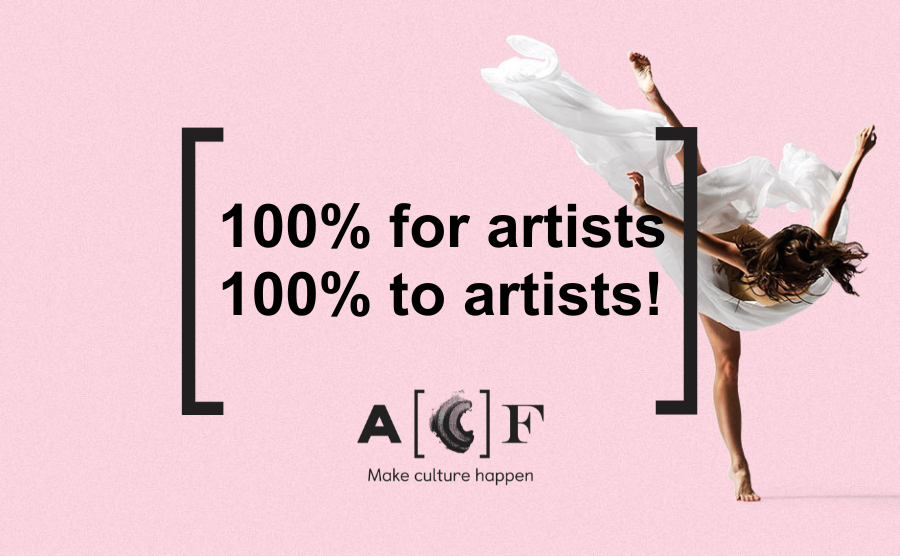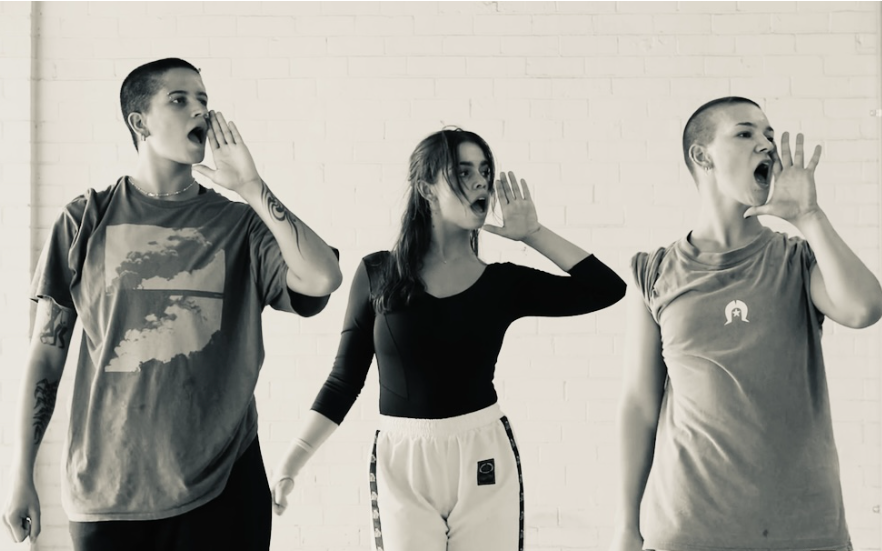From independent artists hoping to tour to the Edinburgh Fringe and musicians planning the release of their new album, through to small to medium arts organisations looking to diversify their existing income streams, crowdsourced funding can sometimes make or break a creative’s ambitions – especially if the fundraising target isn’t met.
Unlike commercially operated fundraising platforms, which often entail an all-or-nothing approach, the Australian Cultural Fund (ACF) ensures that artists keep all the money their supporters have donated throughout a campaign, even if their fundraiser falls short of its original target.
And with the end of financial year (EOFY) fast approaching, the Australian Cultural Fund features the added advantage of providing supporters with tax deductible receipts for any donation they make over two dollars.
‘It’s one of the only fundraising platforms in Australia – and the only such platform for the arts – that provides that tax deductibility, which is such an incentive for donors to contribute,’ explains Jayne Lovelock, who oversees the ACF as part of her broader role as Director Private Partnerships and Impact at Creative Australia.
‘The other thing that’s really special about the ACF is the support and scaffolding we put around the ACF experience,’ Lovelock continues.
‘So when artists register there is a member of the ACF team who reviews their project and then offers help and support. We’re available to provide fundraising ideas and also ideas about their campaign. We also have a network of State Managers, Development and Partnerships, that work with us to provide coaching and advice for ACF artists.’
There is also a dedicated ACF First-Timers Kit available on the website to assist newcomers through every step of the fundraising process. Nor is there any financial cost involved with registering with the ACF; all phases of the fundraising campaign are free.
And being government funded, the Australian Cultural Fund does not subtract even a small amount from any donation made via the platform to ensure its own survival. ‘100% of every donation goes to the artist,’ Lovelock stresses.
It was originally managed by Creative Partnerships Australia, but both Creative Partnerships Australia and the Australian Cultural Fund were folded into Creative Australia following the release of Revive, the national cultural policy in 2023, ensuring a coordinated and centralised approach to arts funding and fundraising across the board. Additionally, staff members Tracy Woolacott, ACF Manager, and ACF Officer Felicia Jong are available online and over the phone to assist potential fundraisers with queries and help registered fundraisers get projects over the line.
Lovelock also emphasises the importance of the ACF being accessible for artists from every sector and at every stage of their career.
‘It really does support and resource the independent arts sector, small organisations and ARIs (artist-run initiatives). But we also get lots of high-profile experienced artists fundraising through the ACF as well. So what’s lovely about it is it’s a space for all artists, not just emerging and not just experienced artists,’ Lovelock says.

ACF campaigns may include everything from fundraising for a new photocopier for a grassroots organisation like Sticky, which plays a key role in supporting the Australian zine-making community, through to acclaimed Wiradjuri dance artist Joel Bray, who has ‘fundraised regularly through the ACF and raised tens of thousands of dollars for his work,’ she continues.
‘We also have a really great campaign at the moment for ACF Boost [a matched funding program for independent artists and small arts organisations], called Keeping Artists Warm During Winter at InPlace’s Garambi Baanj Cultural Precinct [in Eltham, Victoria]. This is a group of First Nations artists that use several community halls in order to make work, share stories and share experiences, and they’re fundraising via ACF Boost for $5000 in matched funds to get some heating installed in those community halls, so that they can continue their work during winter.
‘So, as well as high-profile performance works, there’s also quite pragmatic and small but really meaningful campaigns that come through the ACF as well,’ Lovelock explains.
With a mandate to support artists and increase private giving to the arts, the ACF works closely with wealth managers in trusts and foundations across the philanthropic sector. This ensures creatives who register a fundraising campaign with the ACF don’t have to rely solely on their existing networks of friends and supporters who already know and love their work; it offers the possibility of attracting significant donations from an array of new funders – especially with the end of financial year and tax time looming.
‘Over $60 million has been raised by the ACF since it launched in 2003. And, I should say, five years ago we were raising about $3 million a year; that figure has actually increased. Last year it was $11 million that artists fundraised through the Australian Cultural Fund, which was a record for us and that continues to grow – which means that there were about 10,000 donors who donated last year, and over 700 artists and organisations who registered fundraising campaigns,’ Lovelock says.
With EOFY fast approaching, and both individuals and organisations alike looking at ways to maximise their tax refunds, donating to a fundraising campaign through the ACF is a sure-fire way to assist artists while also benefiting donors financially.
‘Donors can be really confident that their funds are going where we say they will, and that we will be supporting artists to achieve success as well; I think that’s really key to what we do,’ Lovelock concludes.
Learn more about fundraising through the Australian Cultural Fund and consider donating to a campaign before 30 June and the end of the financial year.
